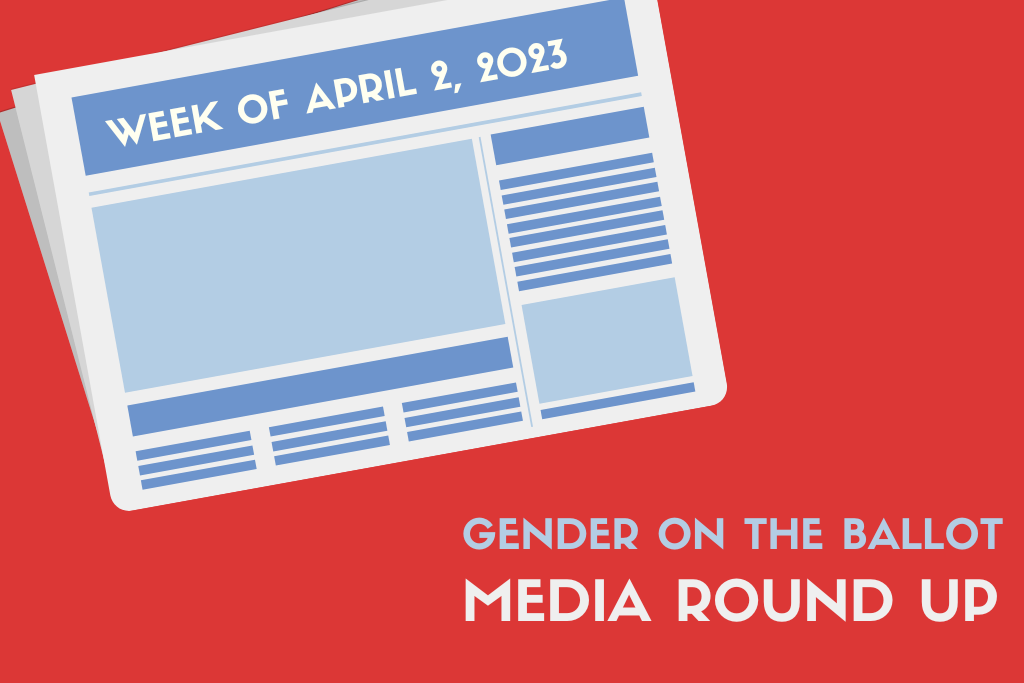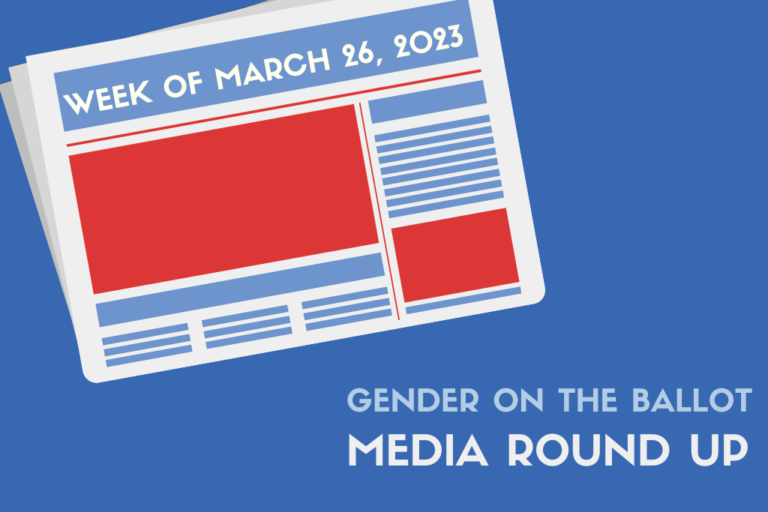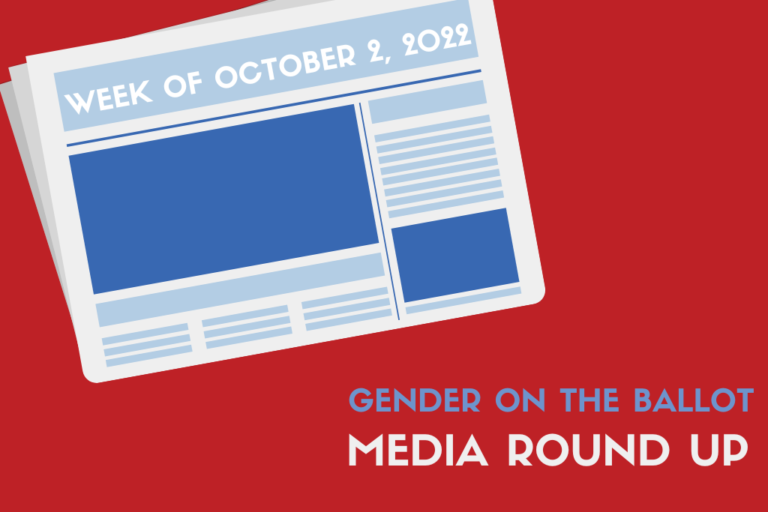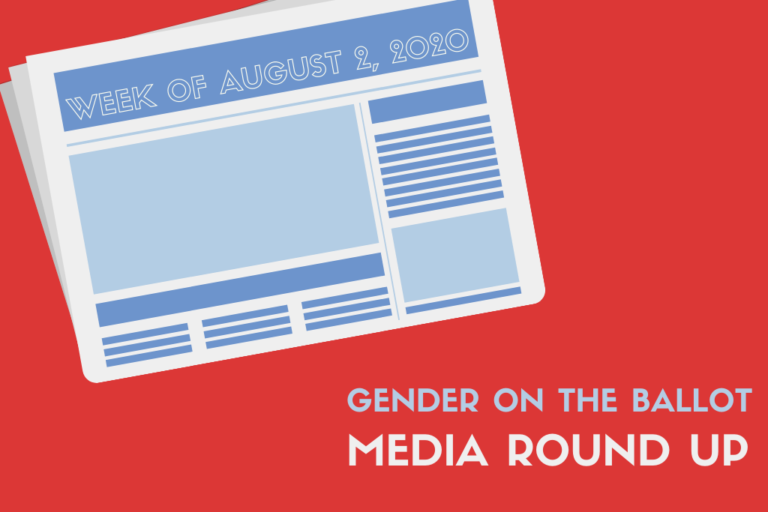Happy Friday! Welcome to our Media Round Up. Each week we’re collecting and sharing…
Gender + Politics Media Round Up: Week of April 2nd

Happy Friday! Welcome to our Media Round Up. Each week we’re collecting and sharing our favorite gender + politics stories. Here’s what caught our eye this week:
Why the wage gap differs among Asian-American women
Chabeli Carrazana and Jasmine Mithani, The 19th*
AAPI women earn 80 cents per every dollar earned by White men when accounting for both full- and part-time workers, more than all other racial groups of women. Despite earning the most out of any other racial group of women compared to White men, the figure obscures the harsher realities faced by Southeast Asian, Native Hawaiian, and Pacific Islander women – who experience some of the largest wage gaps in the country. The AAPI umbrella covers the experiences of groups of people across continents and oceans, which can fail to account for the unique experiences of those groups in the United States.
Read the full story here.
6 of 8 Ivy Leagues will soon have women as presidents — an expert explains why this matters
Felicia Commodore, The Conversation
Beginning on July 1, 2023, three women will assume the role of president at Harvard University, Columbia University, Dartmouth College respectively – meaning that six of the eight Ivy League colleges and universities will have women presidents. This matters because women make up about 60% of undergraduate, master’s, and doctoral students within the United States, but only 32% of presidents of colleges and universities in the country are women. Some of the barriers for women achieving the presidency of collegiate institutions include, “… exclusion from networks that provide mentorship, reward and promotion structures that are not equitable across genders, and bias against women in academic leadership roles.”
Read the full story here.
Women now dominate the book business. Why there and not other creative industries?
Greg Rosalsky, NPR
In recent years, there has been a sea change for women in the book publishing industry. In the past, “…women authored less than 10% of new books published in the US each year,” and now they publish more than 50% of them. In addition, on average female authors sell more books than male authors. Overall, women are dominating the book business while trailing behind men in other creative industries. According to economists, reasons for this phenomenon include growth in self-publishing and the broader feminist movement.
Read the full story here.
Women account for two-thirds of US student loan debt. Here’s how it affects them.
Alia Wong, USA Today
Americans hold $1.7 trillion in student loan debt, and nearly two-thirds of it is owed by women. Research published in 2021 by the American Association of University Women showed that women with bachelor’s degrees graduate have an average of $2,700 more in student loan debt than their male counterparts. The student loan gap compounds over time due to women taking two years longer on average to pay off their debt while interest continues to increase. Many women student loan debt holders have had to take second and third jobs to keep up with student loan payments, and they struggle with upward economic mobility.
Read the full story here.
After Ardern, Marin and Sturgeon, is female representation in politics going backwards?
Jonathan Yerushalmy, The Guardian
Out of the UN’s 193 member countries, fewer than a third have had a female leader. While there has been a huge proportional rise in the number of women running global politics, the actual representation remains incredibly low. Research from the UN suggests that gender equality at the highest positions of power in the participating countries will take 130 years at the current rate. In the last couple of years, the increase of female leaders around the world plateaued and this year, multiple female leaders left office and were replaced by men.
Read the full story here.






